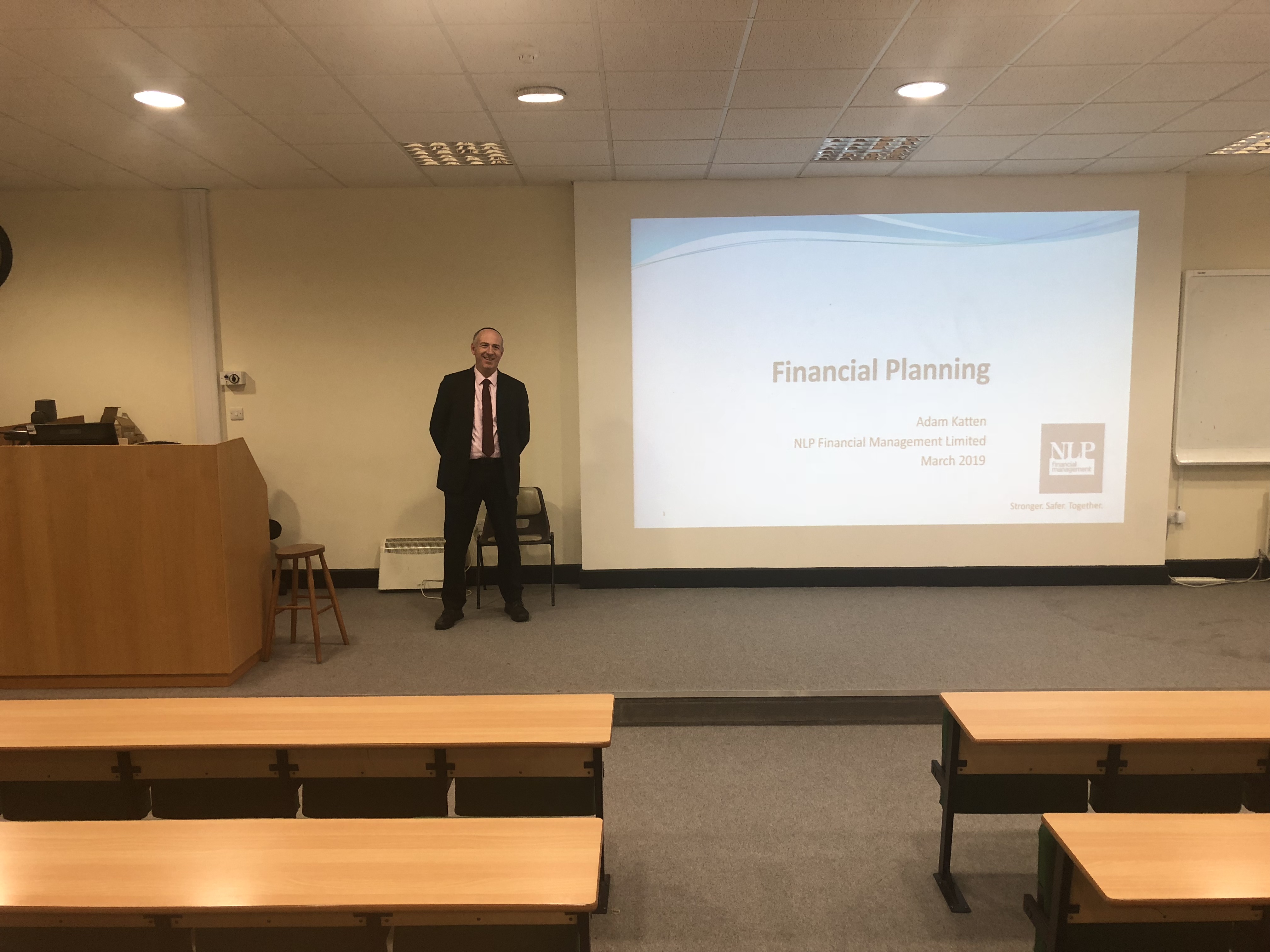Developed markets displayed heightened volatility during November. Deutsche Bank track over 70 distinct asset classes and by mid-November over 90% of these classes were negative for the year to date, which is the highest level since 1901. But by month end, the MSCI World Index was up 1.3%, US equities were up 1.9%, Europe was off -0.6%, the UK -1.5%, and Japan up 1%. Emerging Markets were up 3%, with Asia up 4%, and Latin America 0.2%.
The trigger for the falls had been the rising yields on US Treasury bonds due to further hikes in short term rates by the US Federal Reserve, and fears of the US-China trade war. The OECD said global growth has peaked and will slow down during 2019. Meanwhile, back home the UK and EU signed the draft Withdrawal Agreement to ensure a ‘deep and flexible partnership’ as they laid the ground for the trade negotiations to continue after the UK leaves the EU on 29th March 2019. However, the Prime Minister endured a torrid time presenting the Agreement to Parliament.
UK
The FTSE 100 was down 1.5%. The market is now yielding over 4% and the Price Earnings ratio is down to 12 and stands at attractive valuations below its historic averages.
Brexit has dominated the headlines as Theresa May’s Withdrawal Agreement was brought back to Parliament. Mark Carney, governor of the Bank of England, stoked fears of a UK recession when he presented research on the effects of the various Brexit outcomes. His research indicated that a disorderly ‘No deal’ Brexit could be worse than the Global Financial Crisis of 2008. GDP would shrink by 8%; house prices could crash by 30%, commercial property by 48%; the Pound would fall; inflation and interest rates would have to go up to 4%; and unemployment could rise to 7.5%. The
UK would be £100bn worse off.
The research also revealed that a disruptive Brexit would see GDP down 3%, house price falls of 14%, unemployment up to 5.7%. A ‘close’ deal would affect GDP by 1% and a ‘less close’ deal would mean a GDP fall of 3.75%. Under May’s deal, the UK economy would be 3.9% smaller over 15 years.
Finally, Carney showed that under a ‘No deal’ the economy would be 9.3% smaller. The overall conclusion was that any deal would leave the UK worse off than its current position remaining in the EU. The report was dismissed by Brexiteers as the resurrection of ‘Project Hysteria’.
The crucial vote on the deal was postponed as it was expected to be voted down, so the prime minister declared she would go back to Brussels to obtain assurances regarding the temporary nature of the Irish backstop. The hope that May’s deal will be passed by Parliament faded and the probability of a ‘No-deal’ scenario and a second referendum has risen. A second referendum runs the risk that the original referendum vote would be reversed and there would be no Brexit at all. A softer deal termed ‘Norway Plus’ in which the UK would re-join the EEA and yet retain membership of the customs union and the single market has been muted.
The outlook for UK investors remains complicated. UK equities are weighed down by raised fears of a ‘No-deal Brexit’, although the sterling weakness that would accompany such an outcome would boost the value of overseas profits. There is also the risk of a Labour government which would put pressure on a range of utility and transport company shares which Labour has promised to renationalise. A ‘soft Brexit’ would remove much of the Brexit risk premium but likely cause a rally in the pound, possibly to as high as $1.40 according to J P Morgan. The Pound slipped back to $1.27
by the end of the month.
US
During November the market sold off heavily but ended the month up 1.9%. Valuations were ignored as both Growth and Value stocks fell. Defensive and low beta stocks were sought as much as cyclical stocks was avoided. However, earnings were still on the up as prices were down. Thus, Price Earnings multiples have been compressed. Hardest hit were any special situations companies and those in turnaround mode. The market is buying the safest haven stocks now at any price. Banks and Consumer Staples sectors were affected but Healthcare benefitted as did defence stocks. US factory production has fallen but is well above crisis levels. Labour shortages in the house building sector have pushed up wages.
Facebook dropped on news it would face legal action over misuse of user data, election interference and the introduction of new digital taxes. Apple shares slid 24% on news that sales of the latest iPhone had slowed prompted by reports from key suppliers Lumentum (facial recognition) and Japan Display of reduced production orders. The $265bn loss on their $1trillion market cap is equivalent to the GDP of Bangladesh.
Following the midterm elections on 6th November, the Democrats won a majority in the House of Representatives, but the Republicans held on to their majority in the Senate which should not cause too many problems for Trump to continue implementing his agenda. There are some views the Democrat majority will curtail his spending plans. For instance, he had threatened to withdraw from the 1980s nuclear non-proliferation treaties of the Reagan-Gorbachev era which could lead to increased defence spending.
US Federal Reserve chair Jerome Powell said in a speech to the Economic Club in New York that interest rates may not have to rise as far as previously expected next year, maybe only one or two rises. This was warmly received by the markets and led to a sharp rebound in the Dow Jones and S&P 500 because he had earlier indicated that up to four rises were due during 2019. Future interest rate rises, Quantitative Tightening (QT) as it is called, has the effect of draining liquidity from the system and has raised premature fears of a recession.
At the end of the month further tensions with China emerged. Trump tweeted that he hoped for positive talks with China at the G20 meeting in Argentina. The tariff rate is scheduled to increase in January if a deal cannot be reached and tariffs maybe imposed on all of China’s exports to the US. Although the recent Asia Pacific Economic Summit ended in acrimony, a 90-day tariff truce was declared. However, Meng Wanzhou, Chief Financial Officer of Huawei was then arrested in Vancouver. The arrest was seen as a diplomatic blow against China. Huawei is now the 2nd largest producer of smartphones behind Samsung and ahead of Apple. The US is concerned that Huawei has been stealing US technology under instruction from the Chinese government and infringing intellectual property rights. John Bolton,National Security Adviser, expressed enormous concerns over their business practices. However, Canadian PM Justin Troudeau said the arrest was not politically motivated.
Europe
The EU Summit in Berlin discussed the Brexit deal. France had issues about fishing rights in UK waters. Spain raised issues over the border with Gibraltar. Of particular note, the European Court of Justice has issued a ruling that the UK could reverse the Article 50 process and stop Brexit altogether.
In Germany, the economy shrank 0.2% as a consequence of the impact of the US-China trade wars affecting exports. GDP was expected to fall to 1.5% from 1.8% next year. Much of the weakness appears to have come from a sharp slowdown in exports to China and German industrial production. Car manufacturing has been affected by the car emissions scandals. German banks were also in trouble. The offices of Deutsche Bank in Frankfurt were raided as part of the investigation prompted by the Panama Papers scandal of papers leaked from law firm Mossack Fonseca in 2016.
China and Emerging Markets
The APEC summit ended unusually with no joint agreement amid tensions between China and US over trade and tariff wars as mentioned above. On China’s Singles Day on 11th November Alibaba alone recorded sales of $30.8bn, over three times the total amount of Black Friday/ Cyber Monday in the US.
Brent crude oil prices fell some 30% during the month and ended as low as $58 having recently peaked at $86 on 3rd October. Saudi agreed to cut oil production to support prices. The US has now become the largest oil producer due to the doubling in production of shale oil over the past decade. Falls in oil prices are like a tax cut and support large oil importer countries, particularly those whose currencies have fallen sharply, and will decrease the cost of imports in local currency terms. This is good news for China and India and should be a positive for world GDP next year.
Uncertainty and fear drive down markets
Overall, global growth remains positive. In the near term, the main risk appears to be that the US-China trade conflict will escalate and the extent to which the US and the rest of the world can withstand the impact of ‘trade war’ tariffs. In the medium term, the primary risk is that the US economy is in the late stages of the business cycle and very sensitive to rises in the interest rate cycle. There has been increased buying of US Treasuries which has reduced the yields from 3.25% down to 2.8% as investors seek safety.
Our View
We are aware that short term sentiment and over reaction to geopolitical events has worried investors but we remain convinced that the economic fundamentals have not changed all that much. We are casting our eyes over undervalued areas of markets for further opportunities to invest, such as domestic companies in the UK, as well as select Emerging Markets. Our allocation to alternatives, property, and bonds funds offered the portfolios important downside protection during the recent period of volatility.
Andrew Graham
NOTE: This material has been written for information purposes only and must not be considered as financial advice.
Data as at 30th November 2018.











